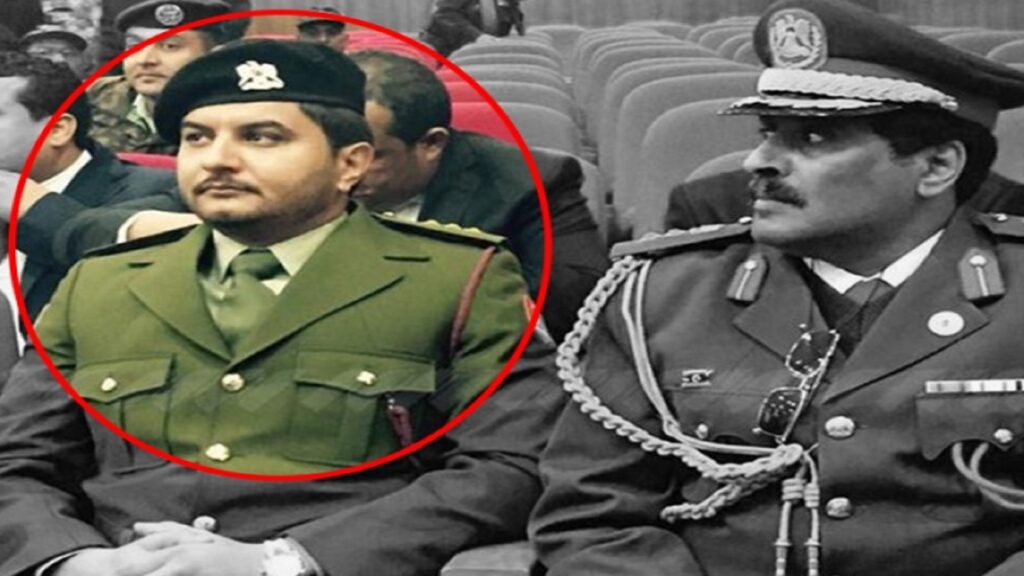
Saddam Haftar, the son of Khalifa Haftar, is seeking to take control of banking institutions in eastern Libya to use them as a source of funding to strengthen his power base and pay the salaries of his forces, according to the Africa Intelligence website.
In its report on Friday, the news outlet said that Saddam is running the financial strategy of the family, especially in the banking sector, and he is working to gradually strengthen his control over banking institutions in Cyrenaica.
As stated by the publisher, during the past few months, Haftar junior placed his men in strategic positions in several banks, a step that allows him to use the credits to get the foreign currency.
His latest maneuvers were the establishment of a parallel central bank in the eastern region headed by Deputy Governor Ali al-Hibri, who was dismissed by the House of Representatives on November 22 on the backdrop of corruption claims.
The fate of Al-Hibri was determined during negotiations in mid-November between Ibrahim Dbiebah, the cousin of Prime Minister Abdul Hamid Dbeibah, and Saddam Haftar.
The deal to exclude Al-Hibri was aimed at putting an end to his financial policy, as he showed less willingness to print currency.
Ruling out Al-Hibri would also allow Khalifa Haftar to gain more control over the financial institution in the eastern region after Al-Hibri was replaced by the pro- Haftar banker Marei Al-Barasi, director of Al-Wahda Bank.
Al-Hibri’s dismissal angered the management of the east-based parallel CBL and halted the reunification process that began this year under the auspices of the United Nations Support Mission in Libya.
The unification process was supposed to be followed by reforms to promote good governance and transparency in the country’s consolidated accounts under the auspices of the US company Deloitte.
Saddam’s firm grip on the eastern region banking sector would enable him to finance his forces, equipment, and operations, but the money could also be useful for more political purposes, says the publisher.
With the postponement of the presidential elections that were planned for December last year, Saddam Haftar could use this delay to build a political machine to prepare for Haftar’s own election campaign.
